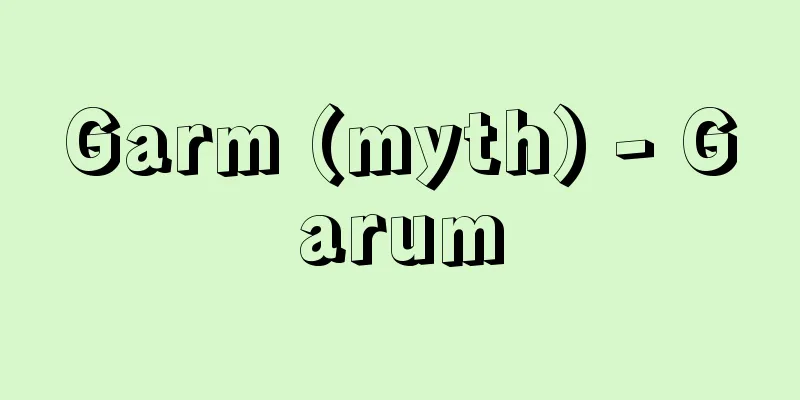Kyoroku - Kyoroku

|
A village in Hebei Province, China, that was buried when the Yellow River flooded in 1108. Excavations began around 1918, unearthing the remains of two dwellings and ceramics from the Song dynasty. The ceramics include those from the Cizhou and Ding kilns, known as Julu ware, with the former being particularly famous for its beautiful white color. Source : Heibonsha Encyclopedia About MyPedia Information |
|
1108年黄河の氾濫(はんらん)で埋没した中国河北省の一邑(ゆう)。1918年ころから発掘され始め,二つの住居跡や宋代の陶磁器が出土。陶磁には磁州窯,定窯のものがあり,鉅鹿陶と称されるが,特に白くて美しい前者は有名。
出典 株式会社平凡社百科事典マイペディアについて 情報 |
<<: Muntjac (English spelling) - Lesser Muntjac
Recommend
Aradus orientalis (English spelling) Aradusorientalis
…[Hasegawa Jin]. … *Some of the terminology that ...
Ishigaki Skink - Ishigaki Lizard
...The back of the adult is uniformly brownish an...
Nickel mineral
The main raw minerals of nickel are pentlandite (a...
Third Reich (English: Third Reich) German
The Nazi ruling system. In general, in Christian ...
Brittle star (spider star)
A general term for echinoderms belonging to the cl...
Nine Old Men - Nine Old Men
...Subsequently, there have been rulings on uncon...
Fujiwara no Yoshitsune - Fujiwara no Yoshitsune
A nobleman and poet of the early Kamakura period. ...
Precaria (English spelling)
A type of land lease procedure. The word comes fro...
Aggregation - Aggregation
...In the past, such individual health checkups w...
Sakata Temple
This temple was located in Sakata, Asuka Village,...
chantefable
...The story of Nicolette, a Muslim female slave,...
Dang Xuan Khu (English spelling)
…He has been the Chairman of the Council of State...
Polar aprotic solvents
...A solvent that contains proton-donating groups...
Clefi
...In the southeast, another force bypassed Raven...
Alcohol lamp - Alcohol lamp (English spelling)
A heating device used as a small heat source. Alc...









